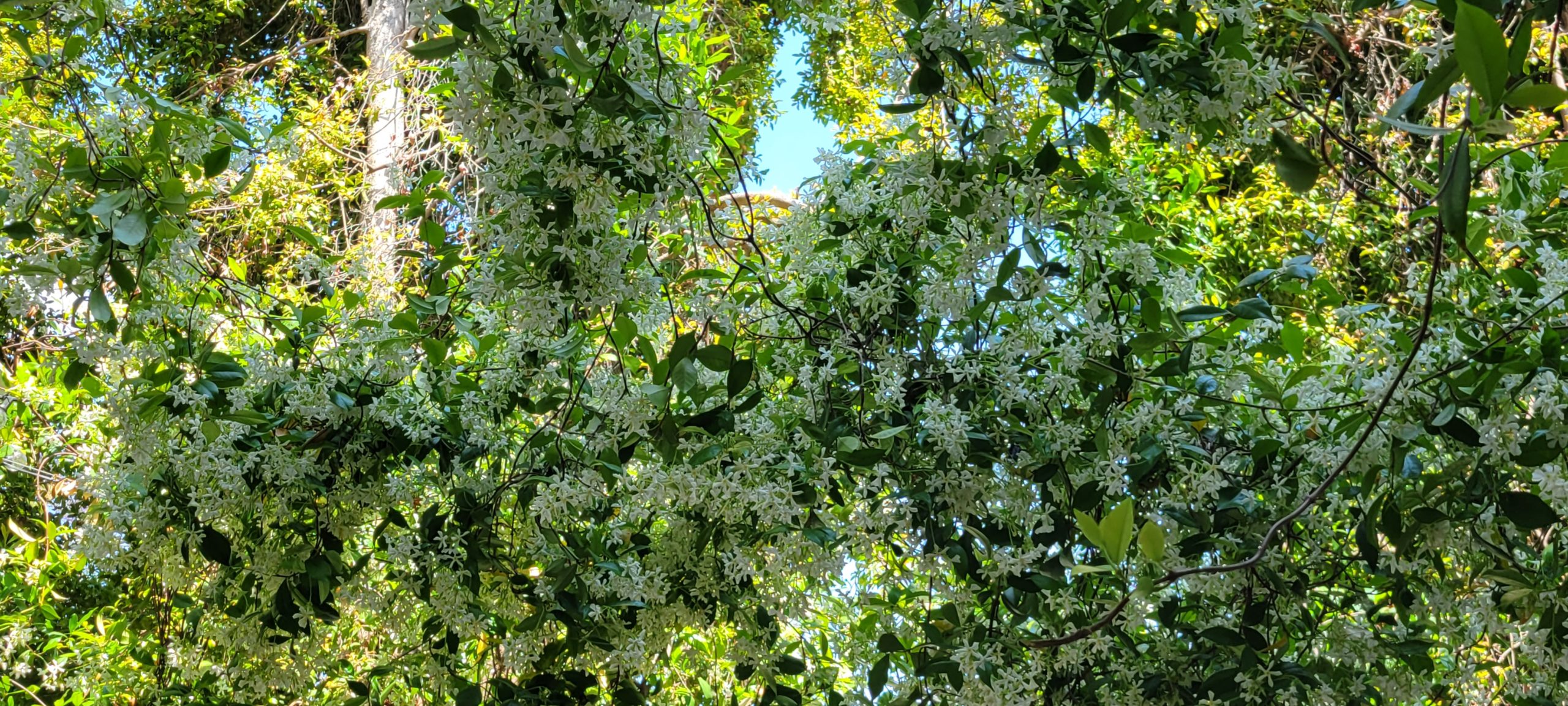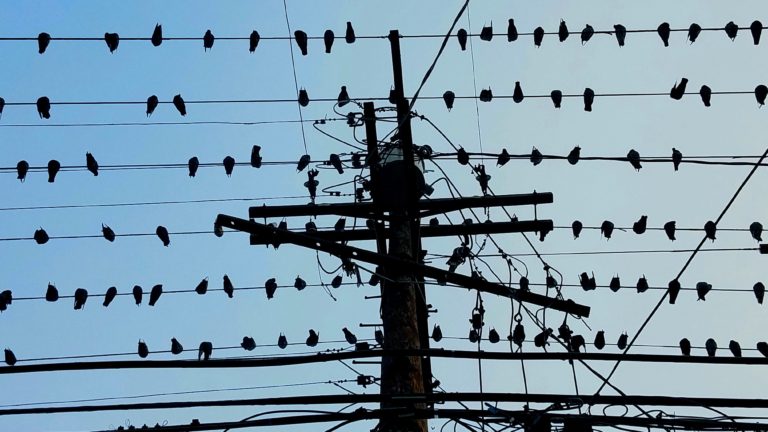Ocelot Lang – Fiction
I looked at my friend. I thought, how wretched a life, to have never met the god of in-between things!

The Toag
The toag was the god of in-between things. It had large round eyes, a head like a grapefruit, triangular ears, a pouchy stomach, flat, webbed feet, and a lavish tail. The toag was half dog, half toad, and it was said to come at in-between times.
The most common time it would appear was when somebody was trying to light a match, in the moment that gasped between the instant before the match was lit and after. The toag would flicker like an illusion, a mirage at the corner of one’s eye, so that one could easily dismiss the event as the movement of a shadow cast in the new light of the flame. Other times it would appear for longer—as people cooked, for example. It would sneak out from behind a box of salt with its webbed hands on its belly and tail wagging slowly as one broke eggs into a pan or stirred a soup on a stove.
Naturally the toag came to be regarded as a symbol of good luck. It was rare to see it; many went their entire lives without ever encountering it. And if it appeared, the thing you were doing was sure to turn out—not necessarily well, and rarely ever the best, but still, to turn into a state of being that was fundamentally altered than its original form. An appearance of the toag as one kneaded the dough of bread, say, would indicate that the dough would at the very least turn into something besides the dough that it was. If a student spotted the toag crawl out from under a desk, sit upon it and peer about with its wide eyes, the student would breathe a sigh of relief, for even if the student failed spectacularly, at least things would be done, and would not be the same as before. The toag was a symbol of things-would-be-different.
Sometimes the toag would appear when one had no idea what exactly they were in between. Sometimes the not knowing would scare people silly. Somebody who was out on a walk with their dog and greeted by the toag sitting on a tree bough over their head might uneasily scoop up the pup and make their way back home, unnerved that they were in the middle of something when they had thought very surely that they weren’t. Sometimes such a person would find that they had forgotten to take out their wash. Other times life would seem to continue exactly as it was before, and they would wonder for most of the rest of their lives why the toag had appeared.
The toag was never wrong to appear. The toag, in fact, was always right, because it had the ability to walk across the folded-up dimensions of time and space with its webbed feet as easily as a chameleon might venture upside-down to the end of a tree branch. This was because the toag was a champion of finding the spots in between two states of being, which it found to be tremendously soft and comfortable spaces to exist in. The toag was, in human terms, much like a cat that sought out the most comfortable spot in a house, like a laundry basket or a folded blanket. Thus the toag would simply meander across the grassy plain of existence until it found an optimal resting place for a while, and move on when things weren’t quite so in-between anymore, and had hardened into certainty again.
The toag appeared to me one morning as I was washing the dishes. I had prepared myself a breakfast of toast with butter and jam and coffee. I saw the toag’s webbed fingers first on the edge of the counter, and soon it had lifted itself upon the tile and sat squatly and peered about. I was of course excited. Everybody is excited when they see the toag. I was excited to tell my coworkers about it, and felt a boastfulness swell in me with glee. The toag had leaned back slightly, and half closed its eyes. I thought it was going to start to purr but it didn’t.
I washed the dishes slowly so I could watch it half doze on the tile of my countertop, its belly rising and falling with its breath. It lifted a foot and scratched its ear.
When I placed the last dish in the rack the toag did not disappear.
I turned off the water and still it was there.
I pulled my rubber gloves off and hung them over the side of the sink and still it did not move.
I looked at it, and it looked at me. For the toag to stick around after the in-between thing was done meant that you were still in-between things. I gave it a thought and supposed that I was, in a larger sense, getting ready for work. I was on track to be late, so I left the toag on the counter and hurried to the bathroom to brush my teeth. I could hear the toag give a sigh and hop after me, its webbed feet flop-flopping on the floor. A toag never liked to be far from its subject.
I grabbed my work bag, my keys, my coat, an umbrella, took a last look at the toag, and hurried out the door to the bus stop, three streets over as the rain splashed down. The bus rolled up, a few minutes past scheduled, and I clambered on shaking the raindrops off my umbrella and got a window seat toward the back. When I tried to put my bag down on the seat next to me I accidentally bumped the toag on the head, who had somehow managed to clamber onto the seat quietly. It did not seem to mind, and had half-closed its eyes again.
A toag to stay in anybody’s presence for more than ten minutes was a rarity among rarities. The world being as it is, there were always more comfortable spots constantly opening up to lure the toag away. This toag had been with me for approximately fourteen minutes. I felt blessed, but not enough to do anything about it except to take a picture of it with my phone. I closed my eyes and leaned my head against the window and listened to the patter of the raindrops.
The bus lurched to a stop and I flung open my eyes. We were in the heart of the city. The toag was gone. I grabbed my shoulder bag and stepped into the garishness of concrete. The city was a toag’s playground. Lines for coffee, a homeless man leaning against a streetlight, a flock of suits rushing past me. Four blocks down, and my building, narrow, brick, and squished in between two larger monoliths. I said hello to the front desk and rushed up the stairs.
The office smelled of dust and coffee. I grabbed my mug from the kitchen, filled it, chirped some hellos and threw my bag on the floor under my desk. It landed with a thump. I opened it to grab my notebook and gave a small scream. There was the toag, looking up at me with its round eyes, belly up, looking groggily as if it had just woke from a nap. It was wagging its tail slowly.
My coworkers, busy at their computers already, stopped their tapping and looked at me.
“Everything alright there?” asked Charlie, a nice girl. We ate lunch together usually.
“Sorry,” I croaked. “The toag is in my bag.”
“The what?” Charlie and a few others came over to look. But of course the toag, shy as it was, wasn’t there. I looked around.
“Well I don’t know where it went. It’s been with me all morning.” The crowd dissipated.
I pressed the start button to my computer, once, twice, and again.
The toag was still around. We had simply scared its physical form away. There were several things that this could mean.
One was that the toag had gotten old or lazy and didn’t feel like finding a new place to bask in.
Two was that the toag had lost its ability to crawl across the folds of spacetime.
Three was that I was in an in-between moment of most unprecedented scale, and had created a moment so cloudy that the toag did not want to leave.
I looked around. The office was the picture of any Wednesday morning. Charlie seemed to be typing up the draft of an article. Anthony was pecking things into a spreadsheet. Gina, my editor, was in a glass meeting room with other editors.
This could be about the letter I received yesterday.
There were some moments when a visit from the toag could turn a heart into one shivering with dread. Perhaps this was one of those.
I had a meeting with my boss at eleven o’clock, our weekly update and check in. Gina sat across from me and made affirming noises as I explained the progress I was making on the stories I was assigned. She gave me a new piece due in a few days about an eviction war in Chinatown. I got up to head back to my desk with a list of phone numbers I was to call when she waved me down again.
“Hold on a minute.”
I sat back down.
“A few things. I…we can’t give you the promotion we told you about because we’re in the red again. I’m so so sorry.”
I nodded.
“As soon as we get more funding it’s something we’ll put at the top of the list.”
I nodded.
Gina sighed and gave a sad smile. “How are you doing?”
“I’m fine,” I said. She was being nice but I think she also pitied me.
“You do seem better.”
“Do I?”
“Yes. I know I fell to pieces when my own mother died. I’m glad you’re coming in to work again.”
I smiled a little. “I enjoy it.”
She nodded. I got up to leave, and this time she didn’t stop me.
The toag was in my bag again. I just knew it was. I kicked it with all my might. The bag toppled over, the toag gave an angry bark, scurried away behind the filing cabinet, and disappeared for several days.
Charlie looked up at me but didn’t say anything.
Last year my mother had been in the hospital for several months until she finally decided that the money that was being spent was not worth it and would face her fates back at home. She thought too that if she was going to die she would rather do it in the house she had lived in for twenty-odd years. We hired a caretaker, who cost less than the hospital, but say what you will about the expense of hospitals, the poor caretaker was no match for the deviousness of mutant cells, and in another two months my mother was led away by Death in her pajamas. I had her cremated and buried her ashes at the base of the lemon tree we had planted long ago.
The thing about living in a house for twenty-odd years with a thirty-year mortgage is that it turns out you don’t own it outright. This would have been good to know earlier.
The house had three bedrooms and a living room with a fireplace. My mom liked plants so there were many of them indoors, ferns and monsteras and a Chinese money plant, and a garden with an untamable bush of roses, several oaks and a corner of herbs. In the summer hydrangeas would bloom and blackberries ripen; in the winter we’d gather some lemons and slice them into a cup with hot water and honey to ward off colds.
I’d grown up in the smallest of the bedrooms, which overlooked the hill which overlooked the ocean. There was no way we could’ve afforded to buy the house today. The neighborhood had squeezed many of its eccentric old citizens into faraway drab suburbs and glass apartments had sprung up on what had been grassy plots where I used to look for gophers. Anyways. I still liked it there, and now there were several coffee shops.
The letter did not come as a surprise. I’d been paying the medical bills first, because the interest was higher, and once a broad man in a suit knocked meatily on my door and asked me directly when payments for them were going to come in. So the mortgage was lower on my list. I had missed a few. Several letters were posted on my door. So what? I had other things to pay. They gave me ninety days to catch up. If I had another six months I could have paid off the medical stuff and started to work on the mortgage stuff. In retrospect maybe I should have paid the mortgage stuff first. But in retrospect I was twenty-three.
In any case, they said my house had sold and I had a month to leave. This was generous of the new owners. I had a month to peel away, whittle down, and destroy the years in my house. I had breathed the molecules of this house for twenty-some years. My bones had formed inside. Yesterday when I pulled the letter off my door I sat down on the stoop and did not move for hours. The toag had not appeared to me then.
The next month was a blur of putting things into boxes and selling furniture. Honestly I don’t remember much of it except that I did a lot of smiling to strangers. Once I saw the toag shuffling around in a pile of art supplies I intended to throw out. I threw a paintbrush at it and it squawked and disappeared behind the sewing machine. I kept my mother’s jewelry, old letters she had received from Dad, her pillow and sheets.
On the second to last day I heard back from a landlord on the east side that said I could move in in three days’ time. It was a small place barely in the city by the river and the commute would be taxing, but I would be able to keep up with payments. The place when I went to visit had brick walls and a courtyard with plants.
On my last night I loaded everything into the car and slept on an air mattress in my mother’s room. I could hear the flip-flop of the toag’s feet in the dark, and eventually the soft sounds of its snores.
The next day was a god-awful windy day. I had taken the day off from work. Somebody was supposed to come at eleven o’clock to carry out this “cash for keys” foreclosure scheme. He arrived at eleven thirty. He inspected the house, I gave him the keys, he gave me a check for $1,000, and I got in my car and left.
I had the money to get a hotel but I didn’t want to. I would sleep in the car.
At night I found a spot under a tree. I wanted to stop at Tanuki’s for a bowl of katsudon. The obachan there has been working forever and she and my mom used to post up and chat for thirty minutes at a time whenever we ordered. I ate at the window counter watching the trees get whipped into a frenzy.
When I went back my car was gone. It was not across the street. It was not down the street, or up the street. It was not several blocks in any direction. I sat on the corner where it had been parked.
An old woman came out. “You’re looking for your car?”
I said yes.
“Mr. Darwin had it towed a while ago.” She pointed at the house next to hers, stately and white and shaded by maples. “He’s kind of a devil when it comes to parking spaces. This one was right next to the fire hydrant.”
“I see,” I croaked. “Thank you.”
I stumbled down to the river as the sun tilted into the west. The water was dark as wine and gurgled in turmoil, stirred into frothing waves. I squatted on the edge of the concrete embankment and stared at the soothing nothing and everything of the troubled water.
To the left at a distance there was a bridge. I made my way over, step by step.
Under the bridge was a steel trashcan with burnt paper inside. There was a box of matches a few feet away, squashed but still intact.
When I lit the first match there was a withering burst of tangerine light and I gasped to see the toag’s shining marble eyes perched on the lip of the trash can until the wind snuffed the flame out and plunged me into twilit darkness again. The second match I had the good sense to drop immediately into the trash can. The paper curled into flame, and with the aid of sticks I found, there was soon a steady pulse of heat and light emanating from the bin.
The toag sat on the lip of the can gazing at me with its flat mouth. I studied it. Its skin looked soft and supple, like a seal’s. It’s banner-like tail was swishing over the side. It was so close I could count the furs on its taut stomach as it rose and fell.
“Well it’s good to see you too, I suppose,” I mumbled, and lifted my hands over the fire to warm my hands.
The toag curled a webbed paw around my finger. The damp coldness sent a ripple through me and blew through the cobwebs of my mind. A few moments like that passed quietly until the toag decided it had had enough and leapt off the edge to crawl across the dimensions to another in-between place.
In the year that followed I saw the toag only a few more times. Once it crawled out of a cabinet when I was stirring a pasta sauce; another time it sat on my windowsill as I repotted the cutting of the lemon tree that had taken root. Each time it appeared I was less surprised to see it, and eventually it stopped appearing to me.
Years later, Charlie had come over for some tea and workplace gossip and the conversation turned to the time I left my house.
“A dark time, definitely,” I said, nodding.
“Any you didn’t say anything to us!” Charlie protested.
“You know I haven’t seen the toag in a while.”
“Toag?” Charlie asked. “What’s that?”
I looked at my friend. I thought, how wretched a life, to have never met the god of in-between things!



